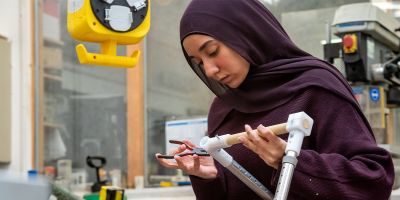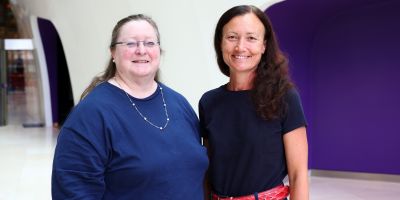Researchers aim to replace browser history lists
A browser extension developed at the University of Leeds offers a new way to visualise web surfing history.
The MyWebSteps add-on, developed by Dr Trien Do and Dr Roy Ruddle in the University’s School of Computing, replaces the familiar browser history list with a graphical environment that allows users to see whole browsing sessions at a glance and search for pages quickly.
The team found that Internet users using normal history lists failed about 20% of the time when asked to find a webpage they had occasionally visited in the past, but were successful 96% of the time using the new tool. The add-on is available for free. Future releases on browsers including Microsoft’s Explorer and Google’s Chrome are planned.
Dr Ruddle, Reader in Interactive Systems at the University of Leeds, said: “We visit, on average, 2,700 webpages a month and more than a third of that activity is revisiting pages we have been to before.
“The problem is that our Internet ‘memory’ is very inefficient. We have all felt the frustration of scrolling through browser history lists failing to find pages that we know we have visited.”
The new add-on turns those lists into accessible visualisations and collects data about sites that makes it easy to search by topic, domain and time of visit. For instance, a user can pull up a tree diagram of a browsing session a week before that shows screenshots of each page, tracing the links they clicked and which web pages led to which. Previous search queries are also captured and made easy to search and explore. Reset and editing functions allow users to remove tracks they don’t want recorded.
“MyWebSteps is more effective and it is also more fun. Many users enjoyed looking back at what and when they had browsed, purely out of curiosity,” Dr Ruddle said.
Dr Do’s research was funded by the University of Leeds under its international research scholarship programme, which supports international doctoral students doing pioneering research. Dr Do now works in the University of Lancaster’s School of Computing and Communications, where he is a research associate.




